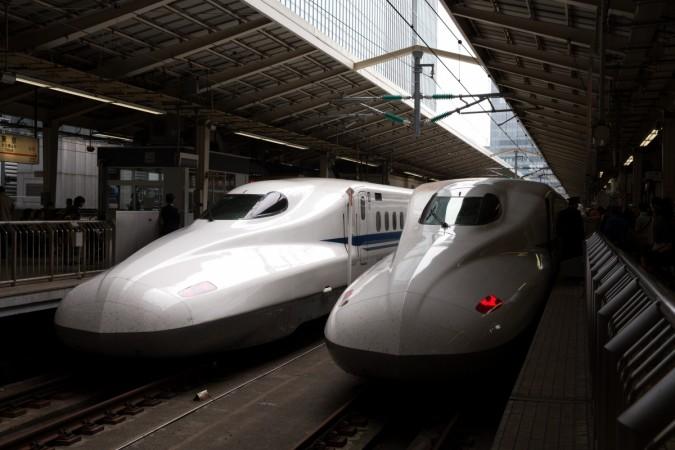As Prime Minister Narendra Modi and his Japanese counterpart Shinzo Abe laid the foundation stone for the ambitious Rs 1.1 lakh crore High-Speed Rail project commonly known as the bullet train on Thursday, State-owned Bharat Heavy Electricals (BHEL) is eyeing to play a major role in the marquee project ranging from manufacturing coaches and civil construction work to laying down rail links.
The project will be a joint venture between India's state-run manufacturer and Japan's Kawasaki Heavy Industries (KHI), together they will produce the rolling stock for the bullet train project, Mint reported.
"The two prime ministers committed to advancing 'Make in India' and transfer of technology in HSR (high-speed rail) projects, and expressed optimism in this direction. They welcomed the series of business matching efforts to establish India-Japan cooperation, such as the prospective technology collaboration between Kawasaki and BHEL," the joint statement issued on Thursday said.
On the occasion of laying the foundation stone of the project, newly appointed Railway minister Piyush Goyal, advanced the project deadline by a year and said India will adopt this technology, innovate and then export it to other countries.
"Both sides will explore further strengthening of partnership in high-speed railways. They also recognised that there is potential for further collaboration between India and Japan in the modernisation and expansion of the conventional railway system and the construction of metro rails in India," the joint statement added.
BHEL has signed a memorandum of understanding (MoU) for the bullet train project, which will have to be translated to a technology collaboration agreement, the business daily reported.
The public sector giant plans to manufacture specialised aluminium coaches required for the bullet train either at its Jhansi or Bhopal facility.

"We are looking at transportation from a holistic standpoint and apart from manufacturing coaches, the bullet train project may also include electrification, signalling, civil construction work, including rail links," Mint quoted a senior BHEL executive said as saying.
BHEL has a strong order book of Rs 1 lakh crore, although new orders in the first of the ongoing fiscal went down 41 percent on a year-on-year basis. The state-run manufacturing company reported 3.9 percent increase in net profit to Rs 80.8 crore on revenue of Rs 5,506.2 crore.
"This is great news for BHEL and the Indian transportation sector. However, BHEL must capitalize on this opportunity to build long-term organic capability in terms of people, systems, technology. In addition, they should plan to build the ecosystem required to support this segment and also target becoming a formidable supplier in global market," Mint quoted Amit Sinha, partner at consulting firm Bain and Co.
The bullet train will traverse the Ahmedabad-Mumbai route, covering 508 km in approximately 2 hours and 58 minutes. The project is scheduled for completion by 2022.

















